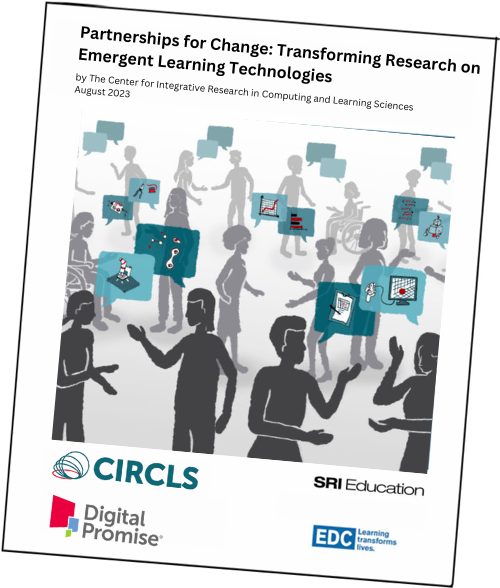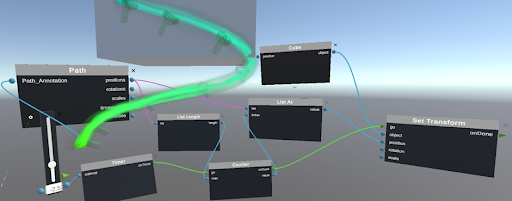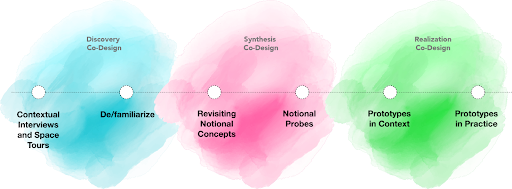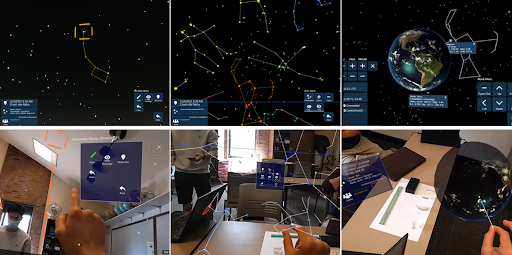What Kinds of Transformations are Possible?
One of the recommendations from the CIRCLS’21 report, “Changing the Design Focus,” emphasizes the importance of allowing community and educator partnerships to shape the direction and priorities of design-based research around learning technologies. While RETTL researchers may explore the cutting edge of emerging technologies for learning, they also listen to project partners and thoughtfully reflect on practical issues. These issues include accessibility and the strategic utilization of existing infrastructures present in both formal and informal educational contexts. Researchers weigh the tradeoffs between the pursuit of “futuristic” innovations and finding “realistic” solutions to issues faced by practitioners. Strong and authentic partnerships can be remarkably potent in bringing these practical issues to the fore by centering the voices of practitioners and allowing for rapid cycles of feedback that shape the design process.
This section will highlight four projects that describe the specific ways of working with educational partners that led to a change in the focus of design-based research.
- Designing the Embodied Coding Environment: A Platform Inspired by Educators and Learners presents a novel platform for “embodied coding” that was shaped by deep and frequent discussions with computer science (CS) educators in San Diego who helped the design team understand and focus on the current challenges faced by CS classroom teachers.
- Smart Spaces for Making: Networked Physical Tools to Support Process Documentation and Learning describes how the design process was shaped by long-term partnerships with three different education sites in Pittsburgh that were enacting reflective documentation practices.
- Working with Community College Partners to Create AR Astronomy Learning Activities that are Collaborative and Impactful describes changes to the design of an augmented reality (AR) platform for learning astronomy based on close engagement with community college instructors in Central Illinois.
- UniVRsal Access: Broadening Participation in Informal STEM Learning for Autistic Learners and Others through Virtual Reality describes how redistributing power within a team that includes researchers, game developers, and neurodivergent college students increases the team’s capacity for broader engagement and leads to solutions that are reflective of the diversity of its members.
Each project provides important insights into how to cultivate partnerships that will allow for design changes that ultimately lead to more impactful and transformational research outcomes. Key lessons include:
- involving partners from the beginning of the project so that they shape the research and design choices;
- listening to and acting on partner contributions;
- maintaining flexibility in balancing research goals with practical realities (especially important since all of these projects were conducted during COVID restrictions); and
- understanding that learning from partners is a core component of the research-based design process.

 Download the CIRCLS 2023 Community Report (PDF)
Download the CIRCLS 2023 Community Report (PDF)


